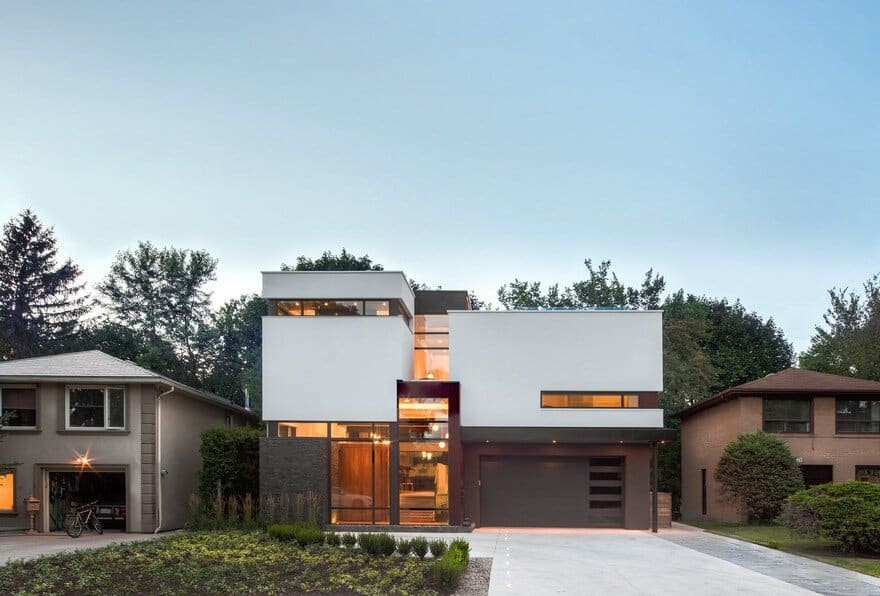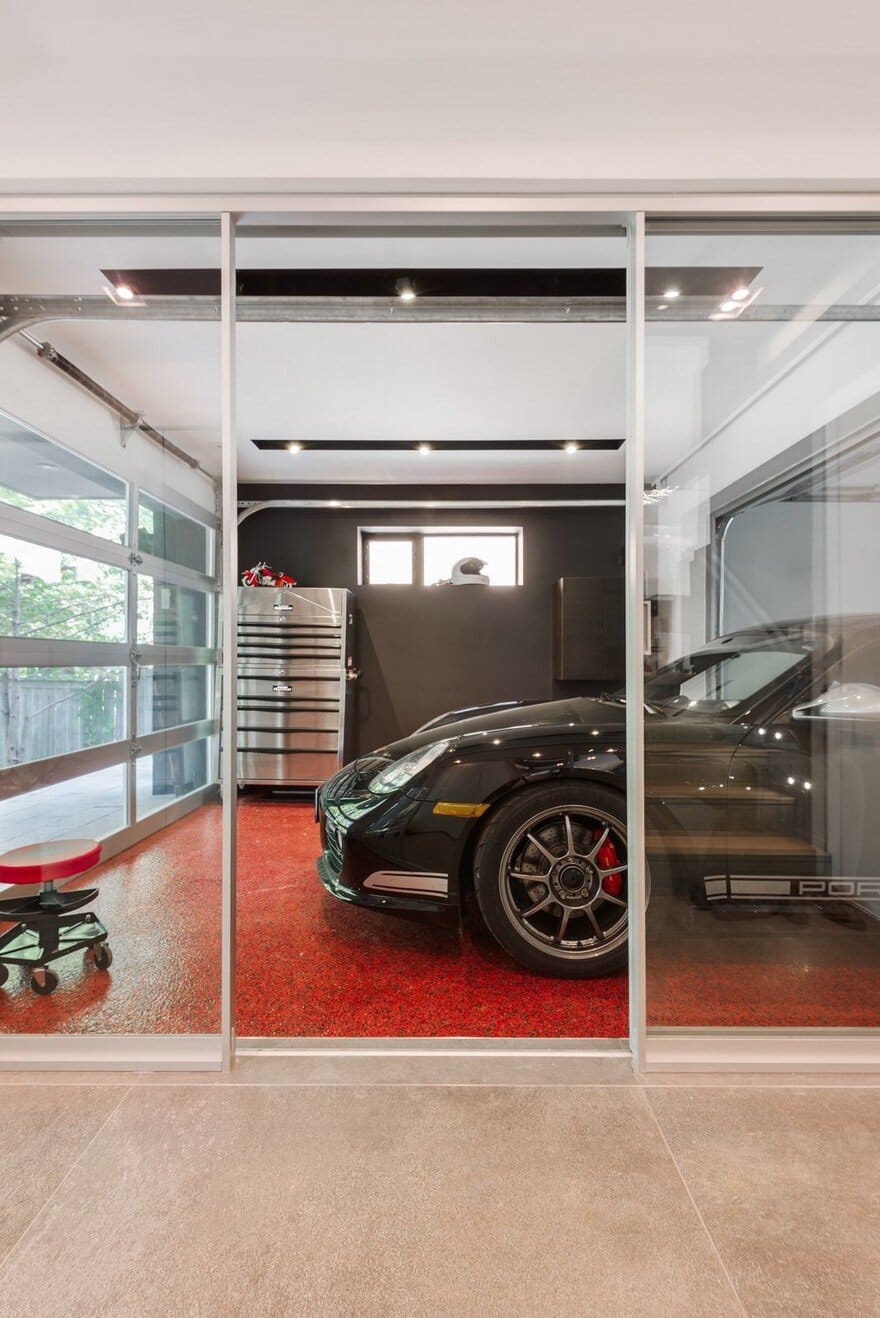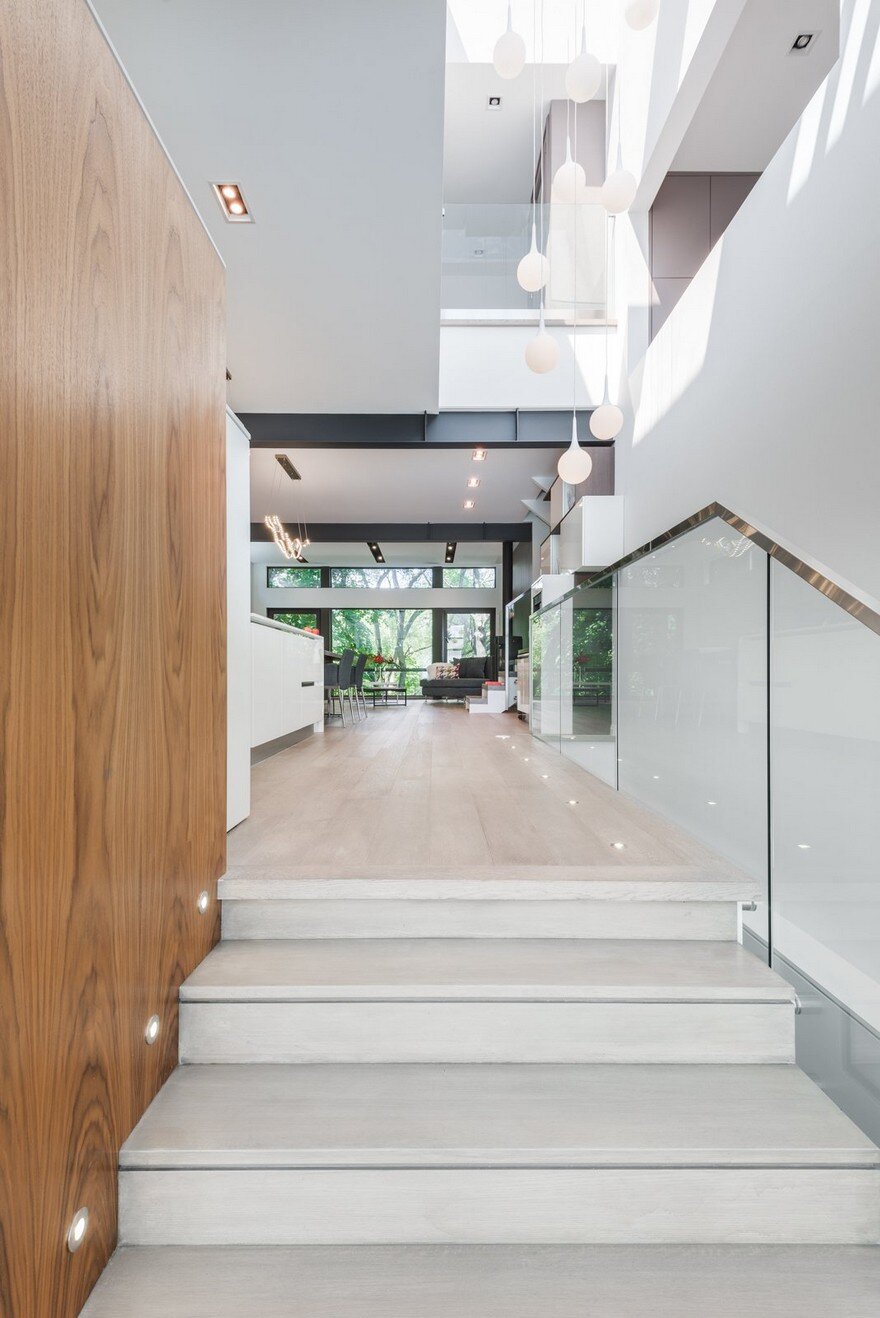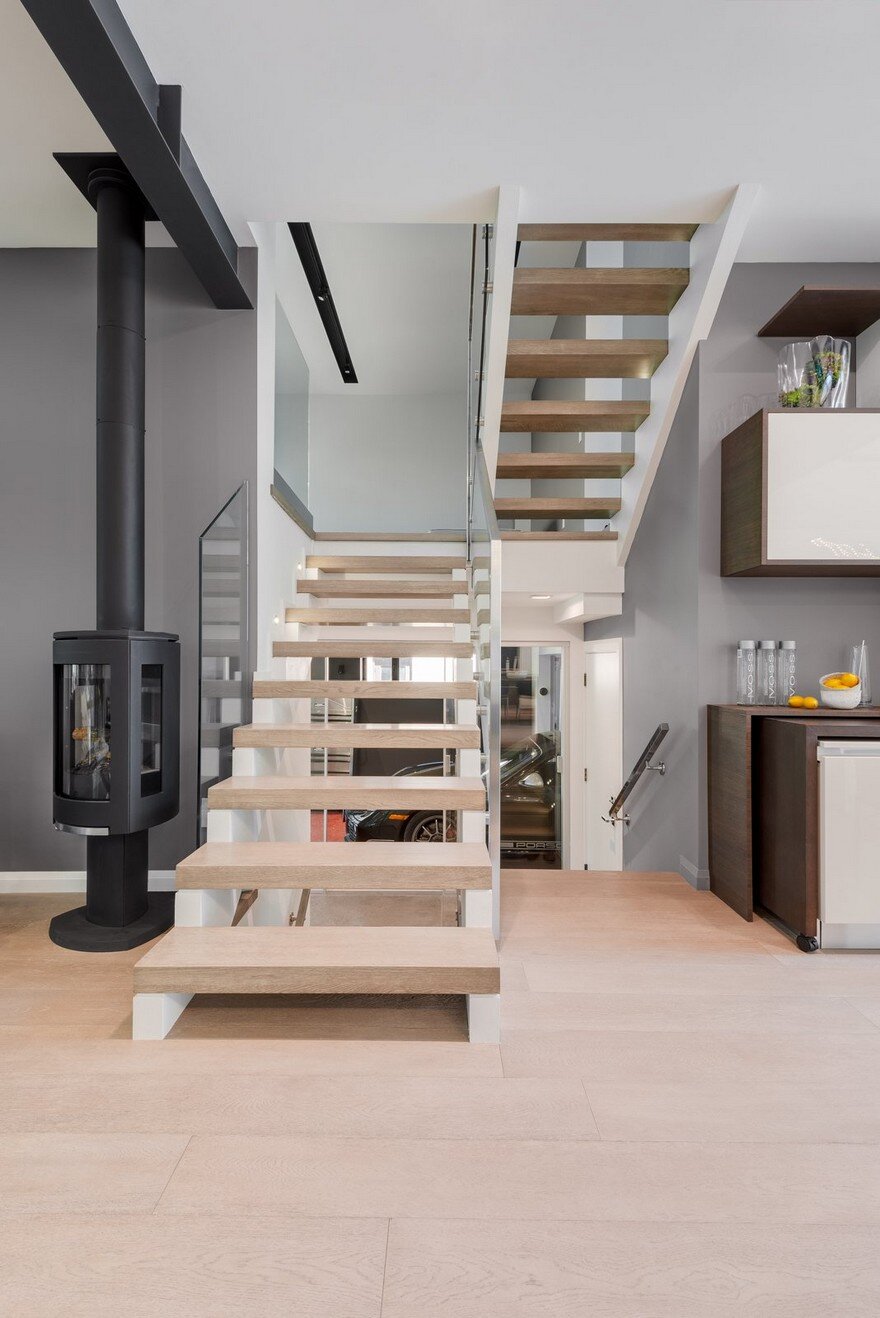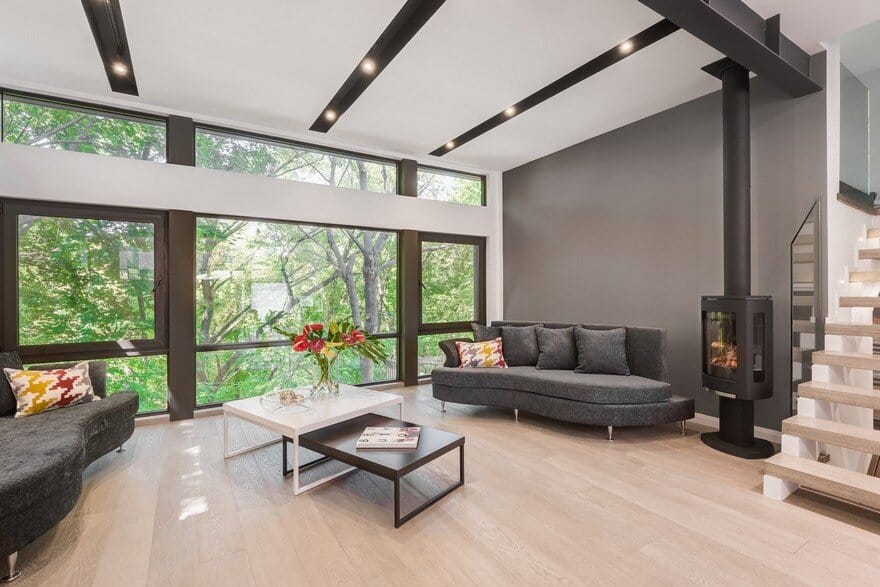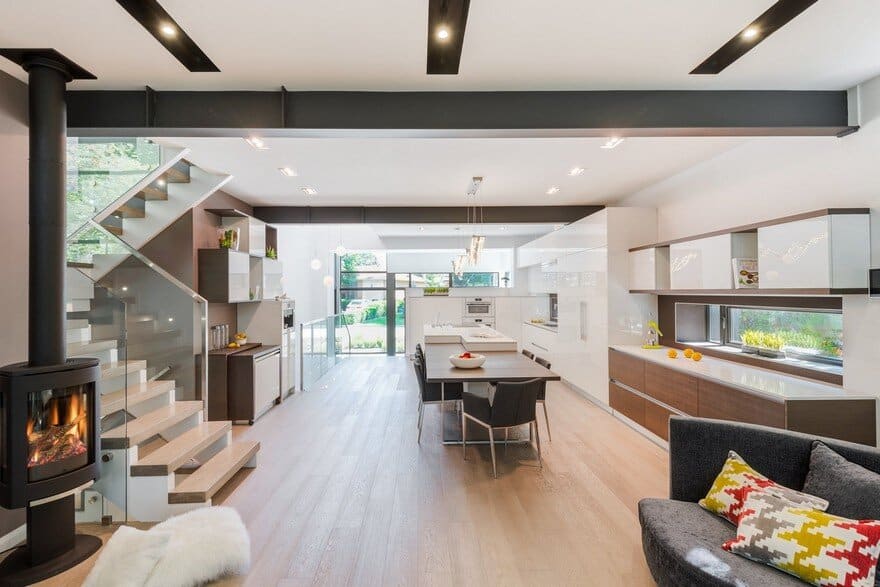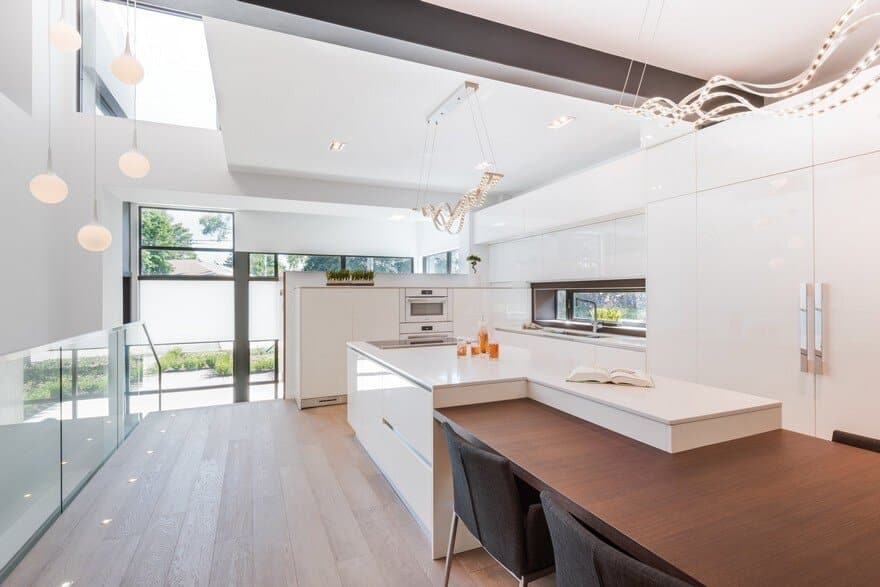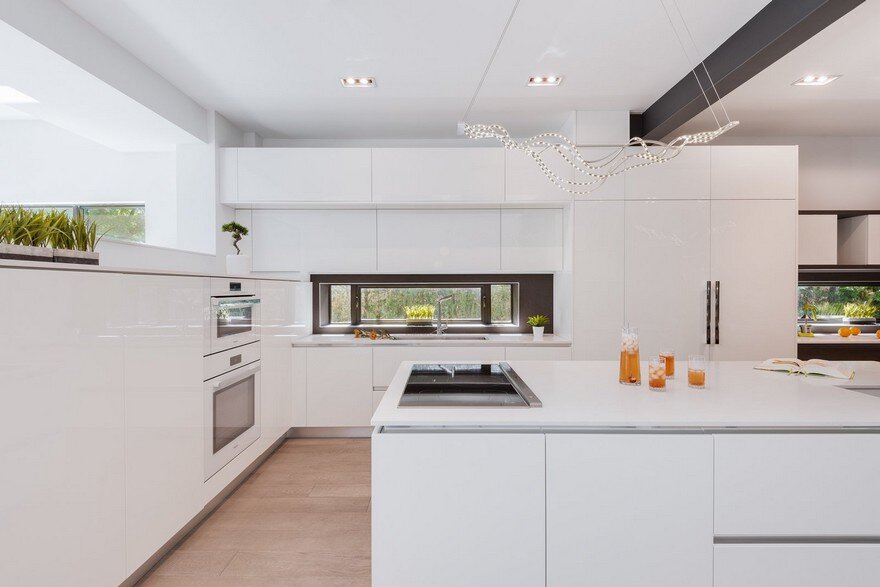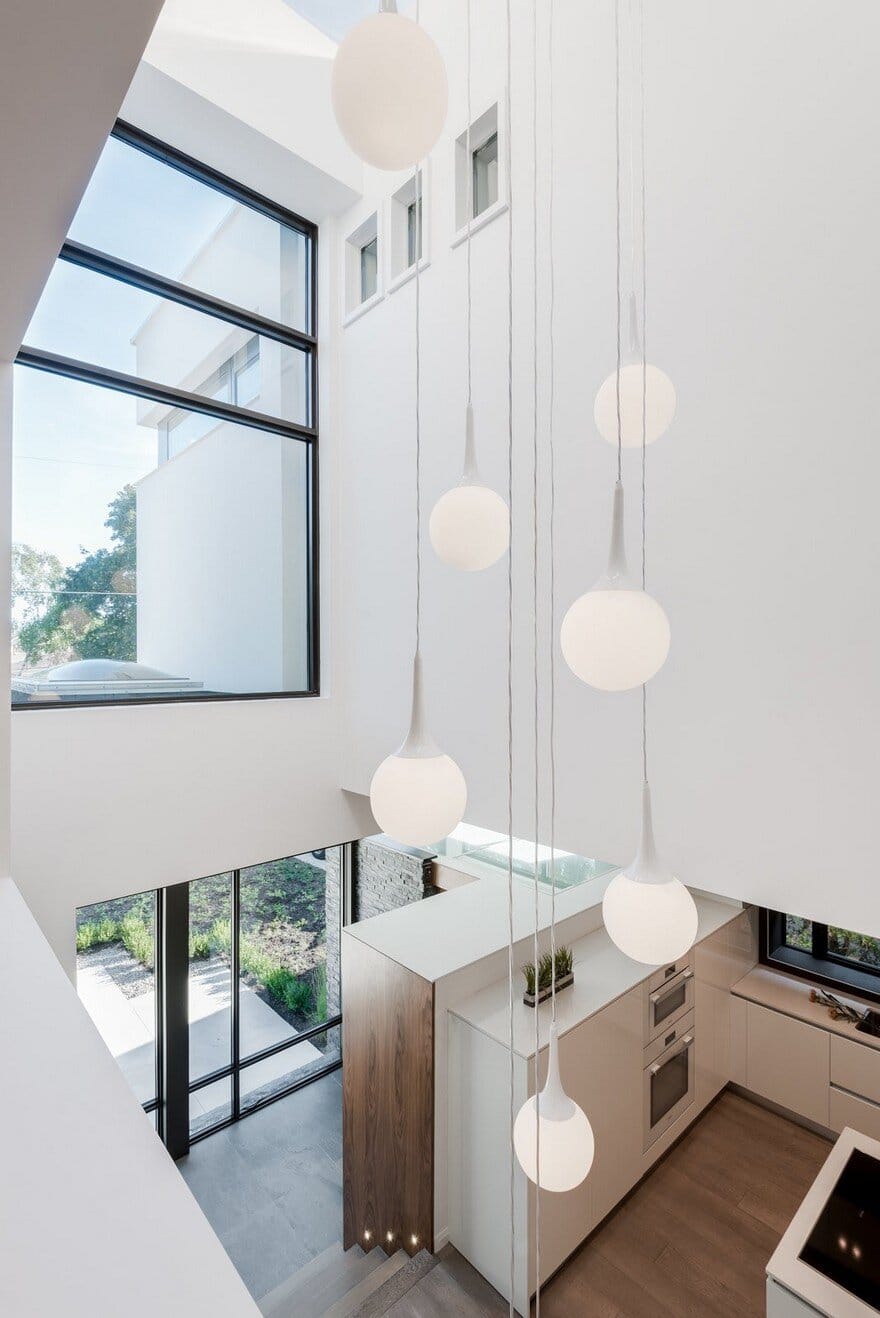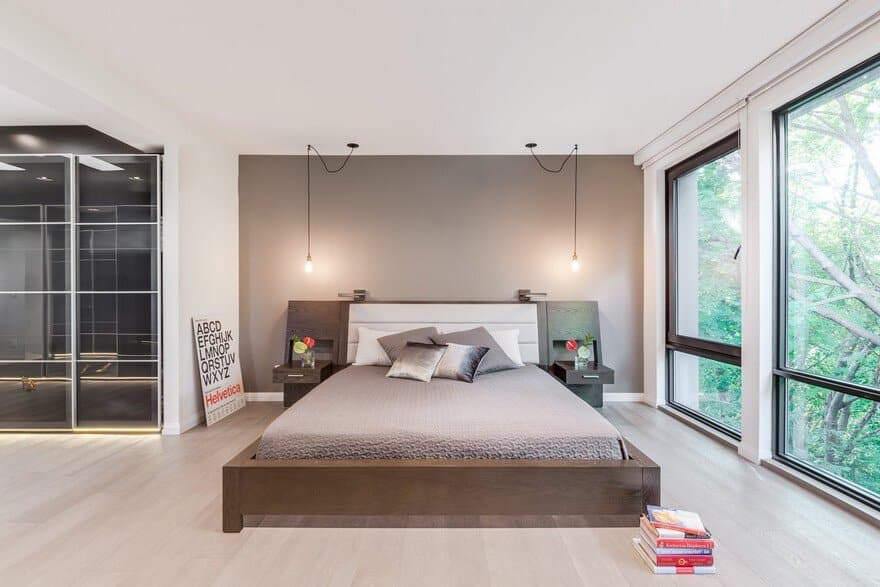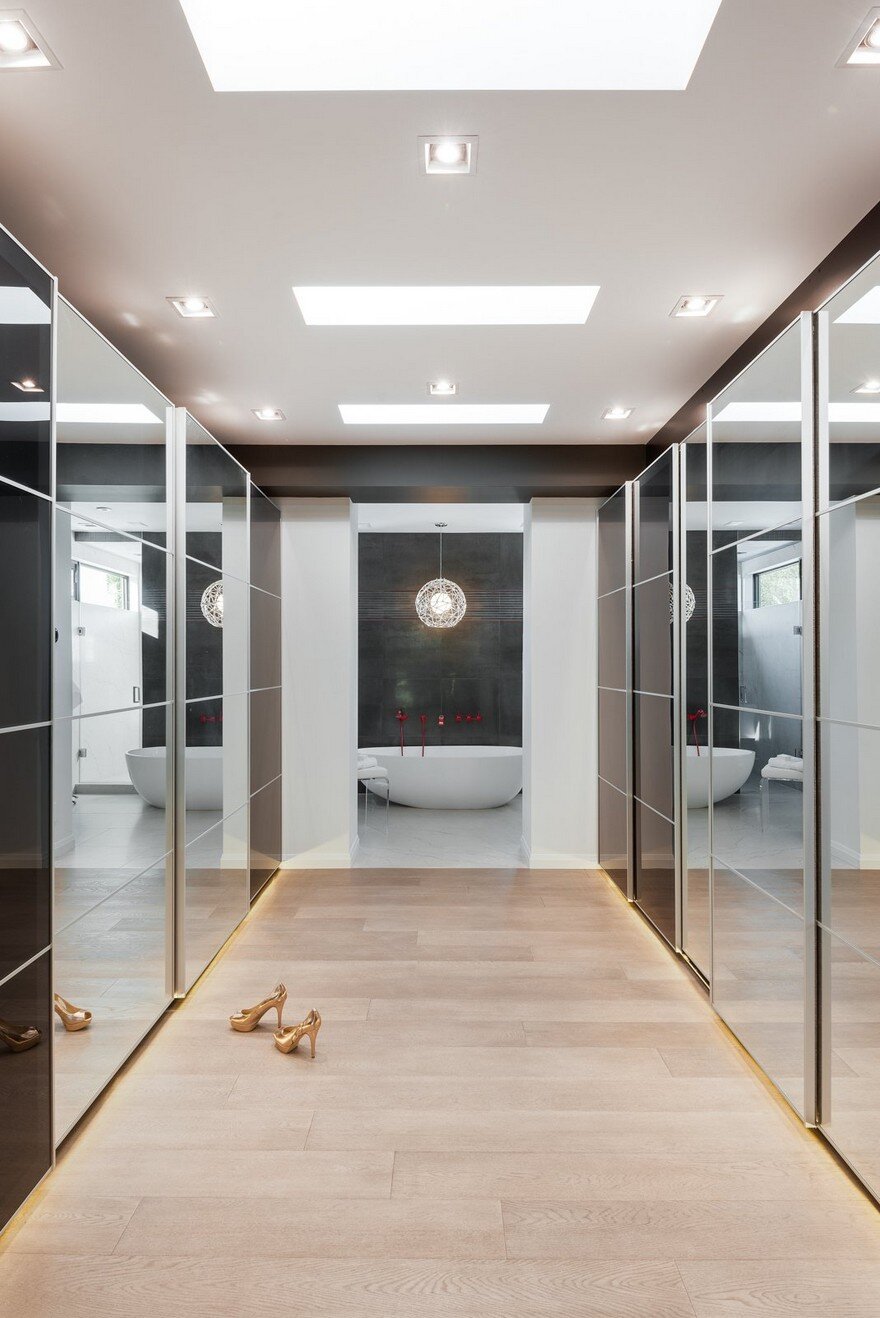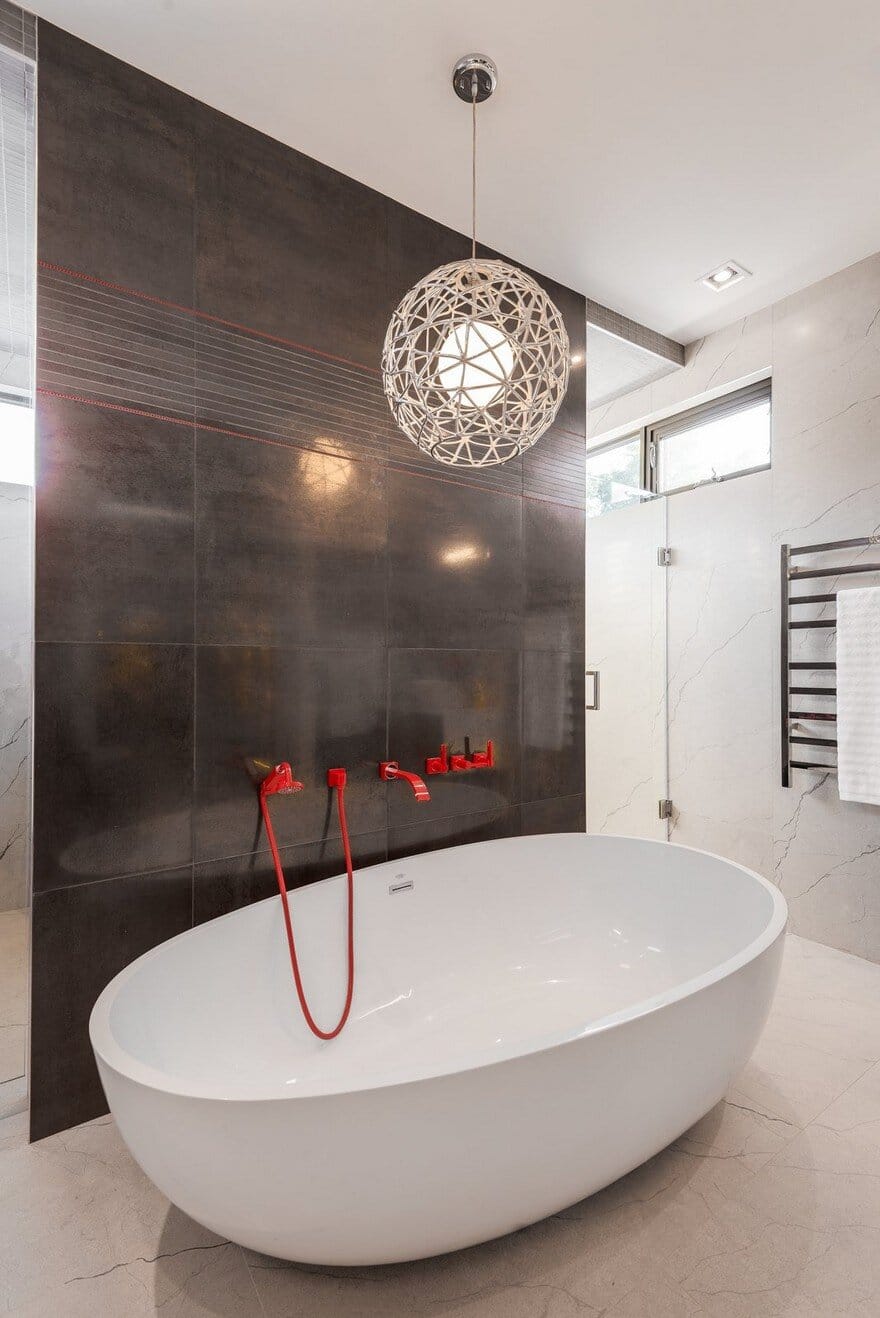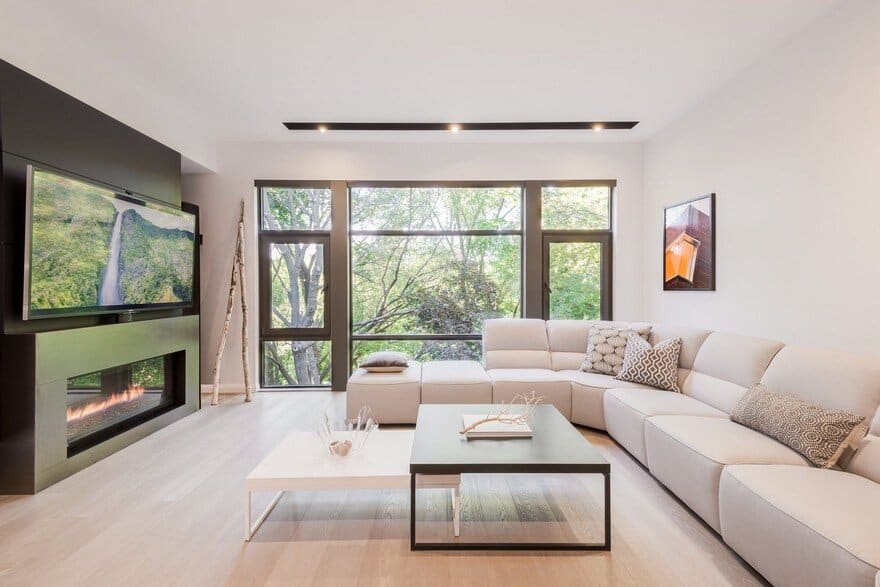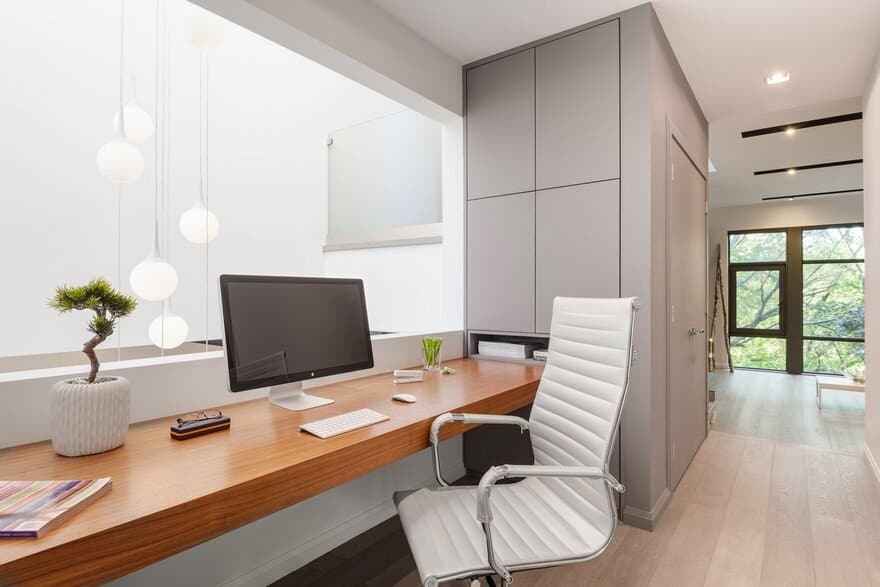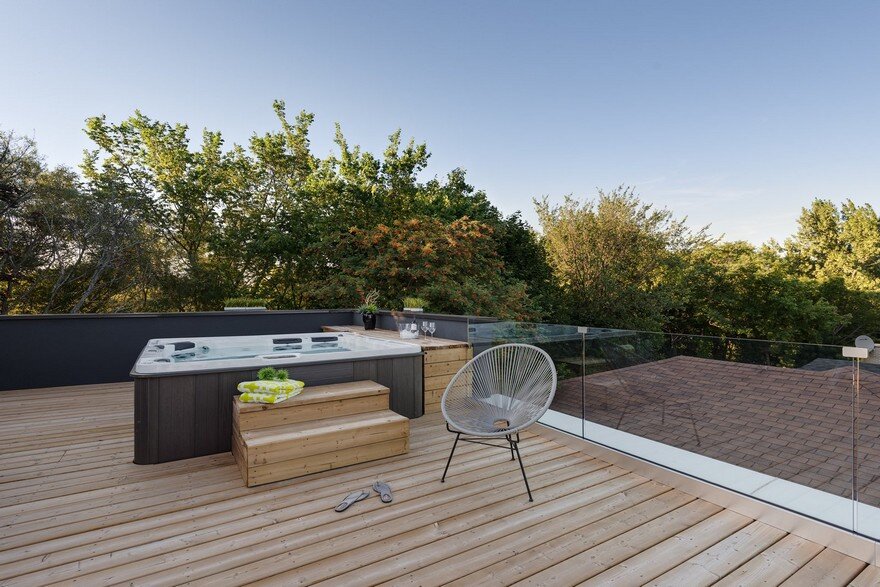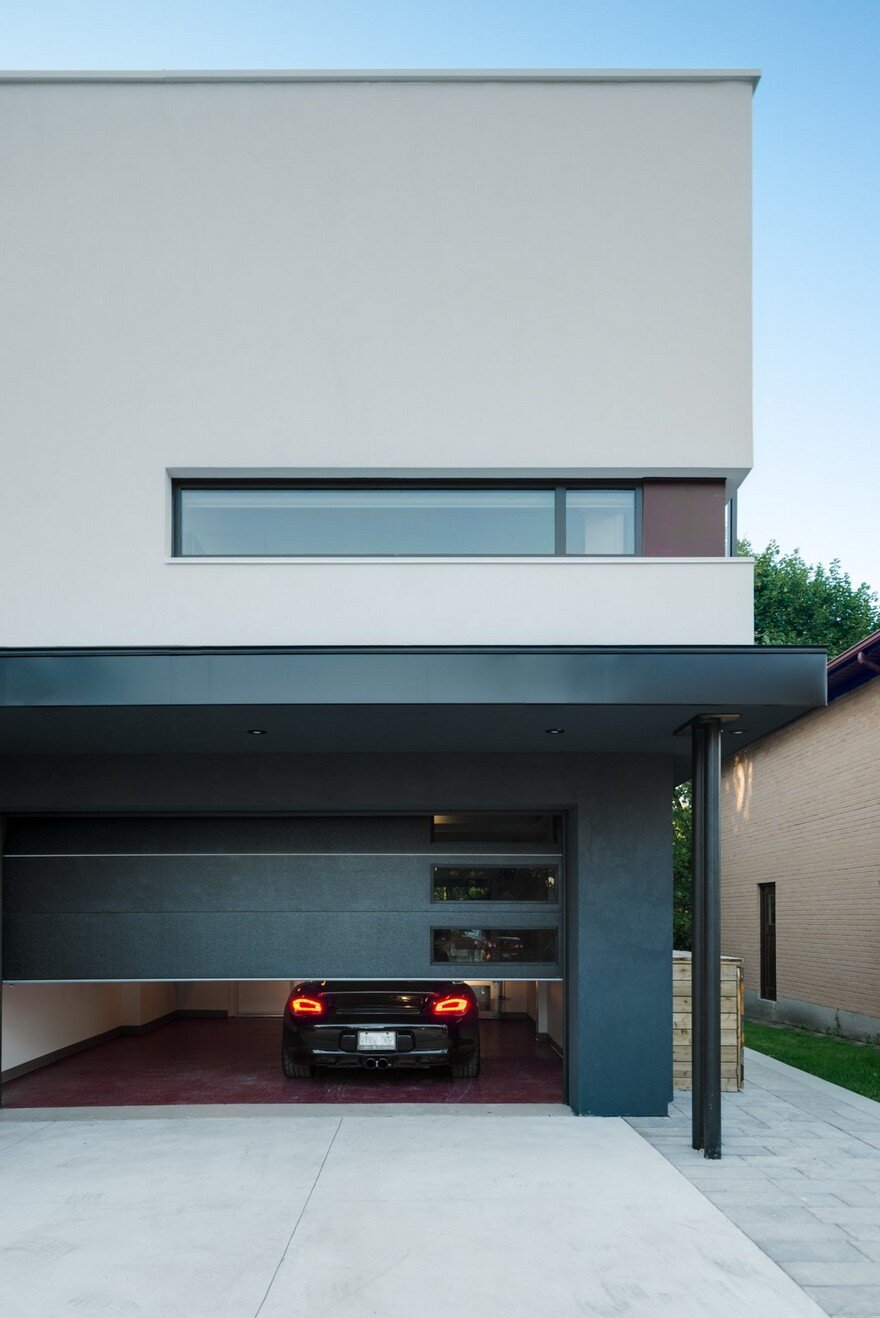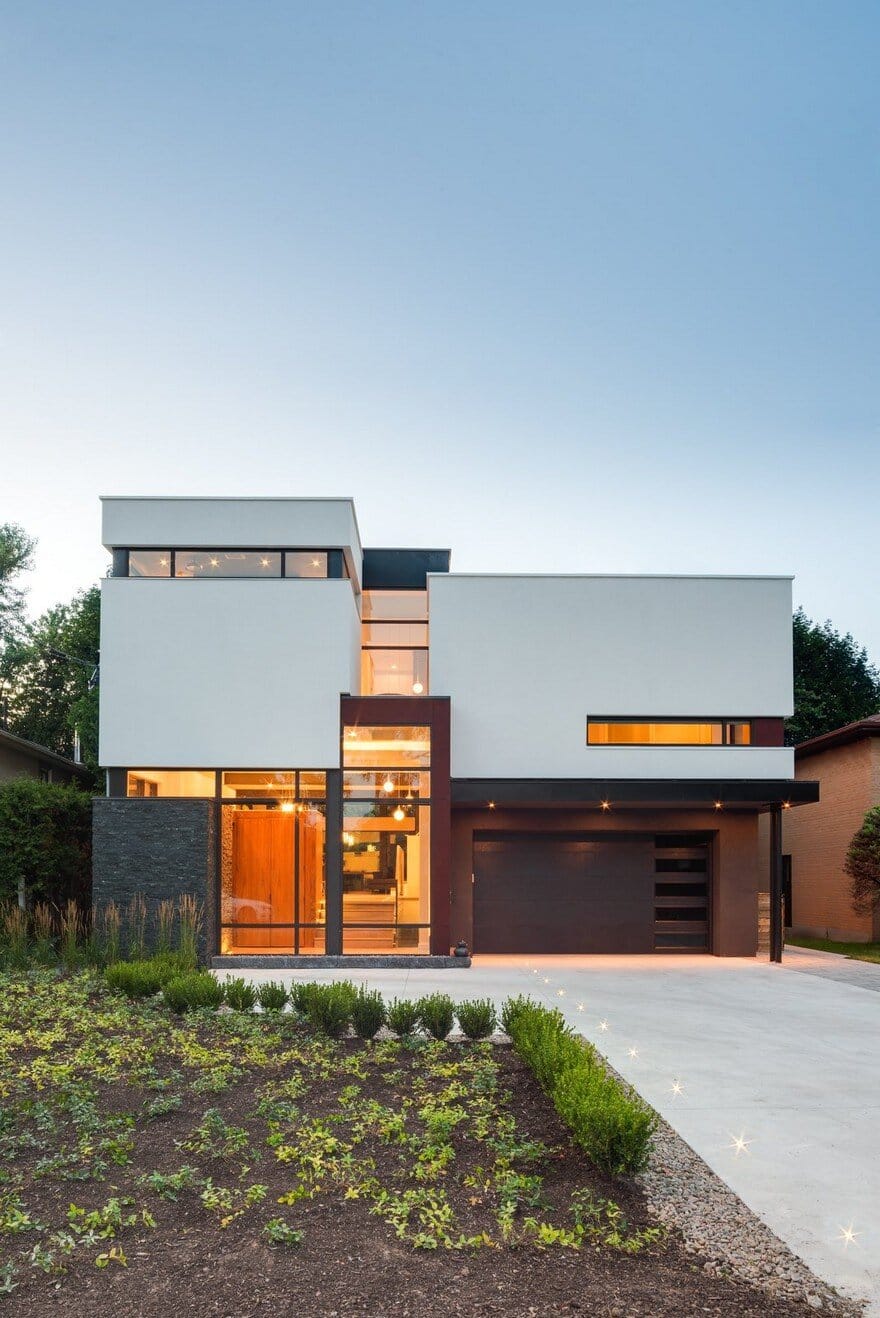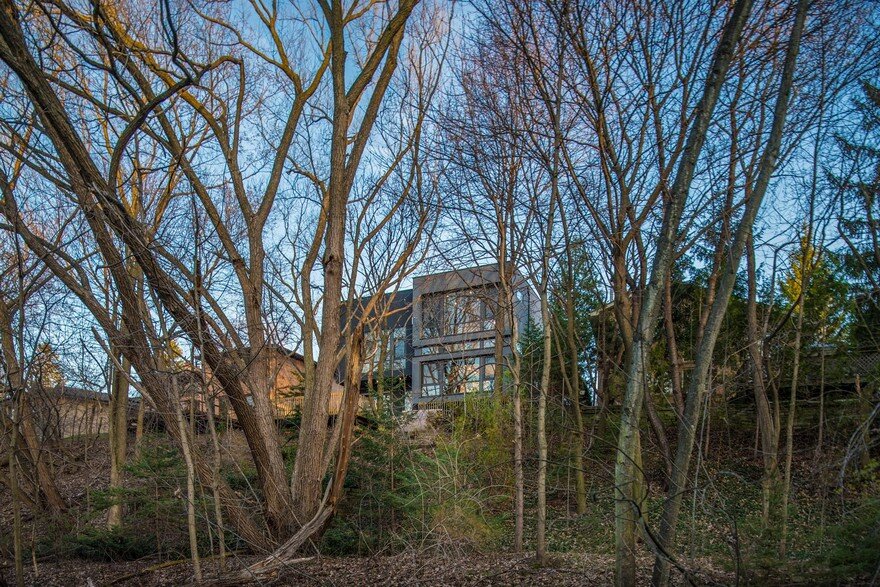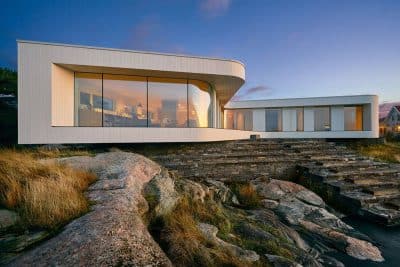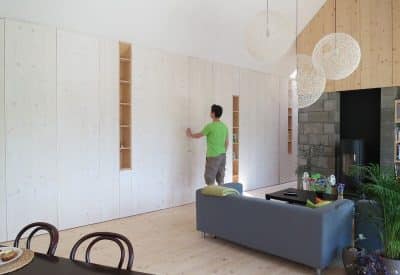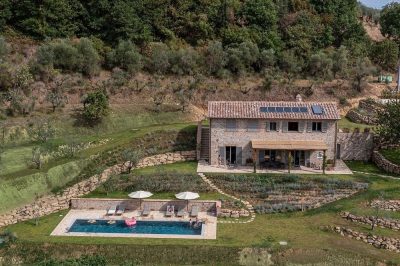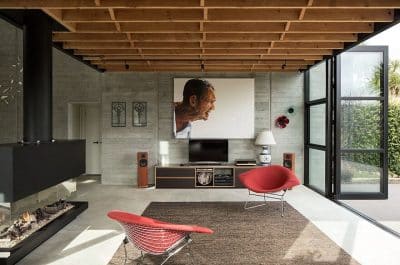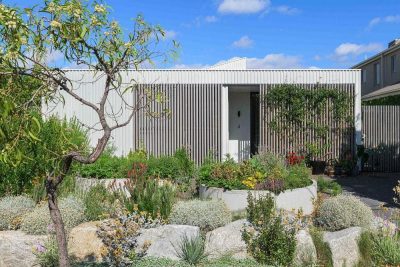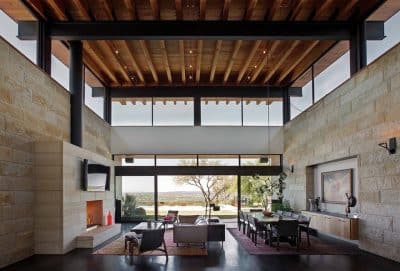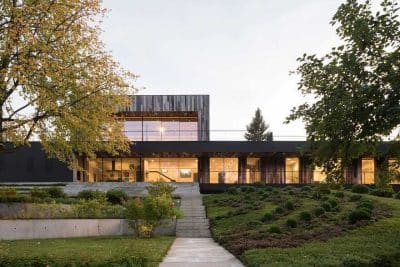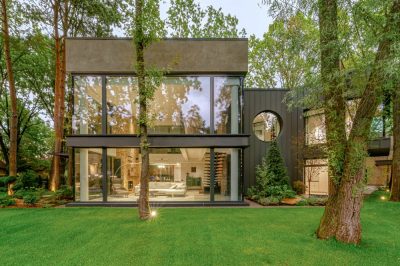Project: Side Split Home
Architects: Urbanscape Architects
Project Team: Ali Malek, Majid Pzhuhi
Location: Toronto, Ontario, Canada
Area: 3000 Square Feet
Year 2017
Photographs: Arnaud Marthouret / Revelateur Studio
In residential architecture, renovations and additions are about respecting the existing structures while creating new opportunities in space for a growing and changing lifestyle. Side Split Home continues the story of an existing side split structure, transforming it into a home suitable for its residents.
The newly designed side split home stands distinguished in its immediate context. It integrates the landscape of the adjacent ravines, the structural form of the existing house, and the spatial requirements of its inhabitants in order to deliver a comprehensive, new home. Leveraging the side split concept, visually, the new appearance of the house connects the garage—complete with an automobile workshop—and the living spaces. The new kitchen, dining and living rooms have been configured to not only be seamlessly connected but also allow for the cantilever extension into the ravine. The owner’s’ “race car” and “motorcycle” collection were incorporated into the space by the way of a glazed wall in the lower level. This direct, visual connection is further emphasized throughout the home, using the over-sized cantilever into the open space.
The main three-storey atrium at the centre of the house was designed to allow for the penetration of sunlight from the front of the house into various levels, particularly, into the renovated basement, the kitchen on the first, the study on the second floors. As the main design feature, the atrium focuses the spatial relationships between private and public spaces of the new house, providing visual connections from the basement to the second floor. The family room is elevated on the main floor to create a close relationship with the bedrooms and the study. The master suite, on the top floor, has access to the rooftop patio, a hot tub, a seating area and the vistas of the ravine.
The material selection deliberately distinguishes the old from the new. Warm and welcoming, the stucco finishes in two colours, as main cladding, and the composite wood veneer, as an accent at the front entrance, created a memorable contrast while lowered the cost of the project. Moreover, using steel in the new structure fostered the stability to open up the living spaces and cantilevering addition. A High-velocity HVAC system was incorporated into the house to increase the energy efficiency and provide a more comfortable, balanced condition for the residents’ life.

